By Diane Swanbrow
News and Information Services
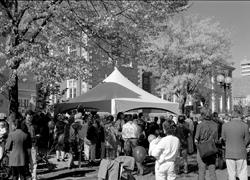
Even the weather cooperated as faculty, staff, students and friends of the Institute for Research on Women and Gender (IRWG) and the Women’s Studies Program gathered Oct. 20 to celebrate the opening of Lane Hall, the new home of both programs. The celebration began at noon, under sunny skies and accompanied by the peal of the Burton Tower carillon.
IRWG Director Abigail Stewart welcomed President Lee C. Bollinger, Provost Nancy Cantor and several Regents, who were among the crowd of more than 150 people gathered outside the building at the corner of State and Washington streets. The festivities continued throughout the afternoon and into the evening.
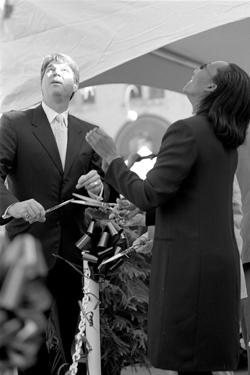
Stewart opened the ribbon-cutting ceremony for the renovated building by invoking what became a recurrent theme of the event—the dictum of British author Virginia Woolf that women are capable of accomplishing anything with “five hundred a year each of us and rooms of our own.”
“When women’s studies was established here almost 30 years ago, feminist scholars with big dreams occupied a small room,” said Stewart, who recently was named to the Agnes Inglis Collegiate Professorship of Psychology. “We were glad to have that room, but it cramped our style. Now we have a beautiful building with a rich and special history, right in the middle of campus and town. This place makes a statement.”
Sidonie Smith, director of the Women’s Studies Program and professor of English and of women’s studies, observed that the first course in women’s studies was offered “to a reluctant and suspicious” academic community. Since then, women’s studies has forged collaborations with scholars from a wide range of disciplines, and Lane Hall “has already become a center of activity for scholars from around the university.”
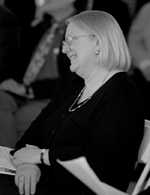
LS&A Dean Shirley Neuman reflected on the significance of Lane Hall’s style and location, reviewing the women’s studies offices that she had occupied throughout her career. “There was the Quonset hut,” she recalled “There was the trailer. There was the office in the sub-sub-basement. This building, with such graceful, elegant architecture, situated at one of the most visible locations on this campus, signals in a real and symbolic way the importance of women’s studies today.”
Later that afternoon at Rackham Auditorium, Provost Nancy Cantor noted that the day’s celebration provided a chance to reflect on the many ways in which women’s “lived experience” differs from that of men. She also welcomed the festivities as an opportunity to acknowledge how women’s studies and IRWG, with their emphasis on collaboration across scholarly disciplines, “demonstrate what is absolutely the best about this institution.”
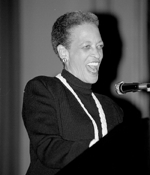
“From the very first moment Nancy and I began the new central administration, I knew that Lane Hall was very close to her heart,” Bollinger said. Pointing out that fully one-half the vice presidents in the administration are women, he noted that the expanded and renovated building would make it possible for IRWG and women’s studies to increase the collaborations that have been so influential in advancing the understanding of a wide range of disciplines.
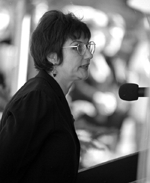
He also introduced keynote speaker Johnnetta B. Cole, professor of anthropology, women’s studies and African American studies at Emory University, and a former president of Spelman College.
Cole reaffirmed Woolf’s view about the importance of space for women to think, write and create. “Now IRWG and women’s studies have not a room but a building of their own,” she said. “And it’s not theirs alone, but for all womenfolk.”
In addition to celebrating how far women have come, Cole urged the audience to reflect on “what is lost to our society, our culture, our world, when women are denied a place of our own.” And she issued a challenge that earned a standing ovation from the audience:
“Let Lane Hall serve as a beacon of ongoing change where women of all backgrounds and beliefs feel at home, a shelter from the storm of patriarchy in the academy and in the world at large, a place that welcomes the diversity of women, a place where we can make a contribution to that day when difference doesn’t make any more difference.”

